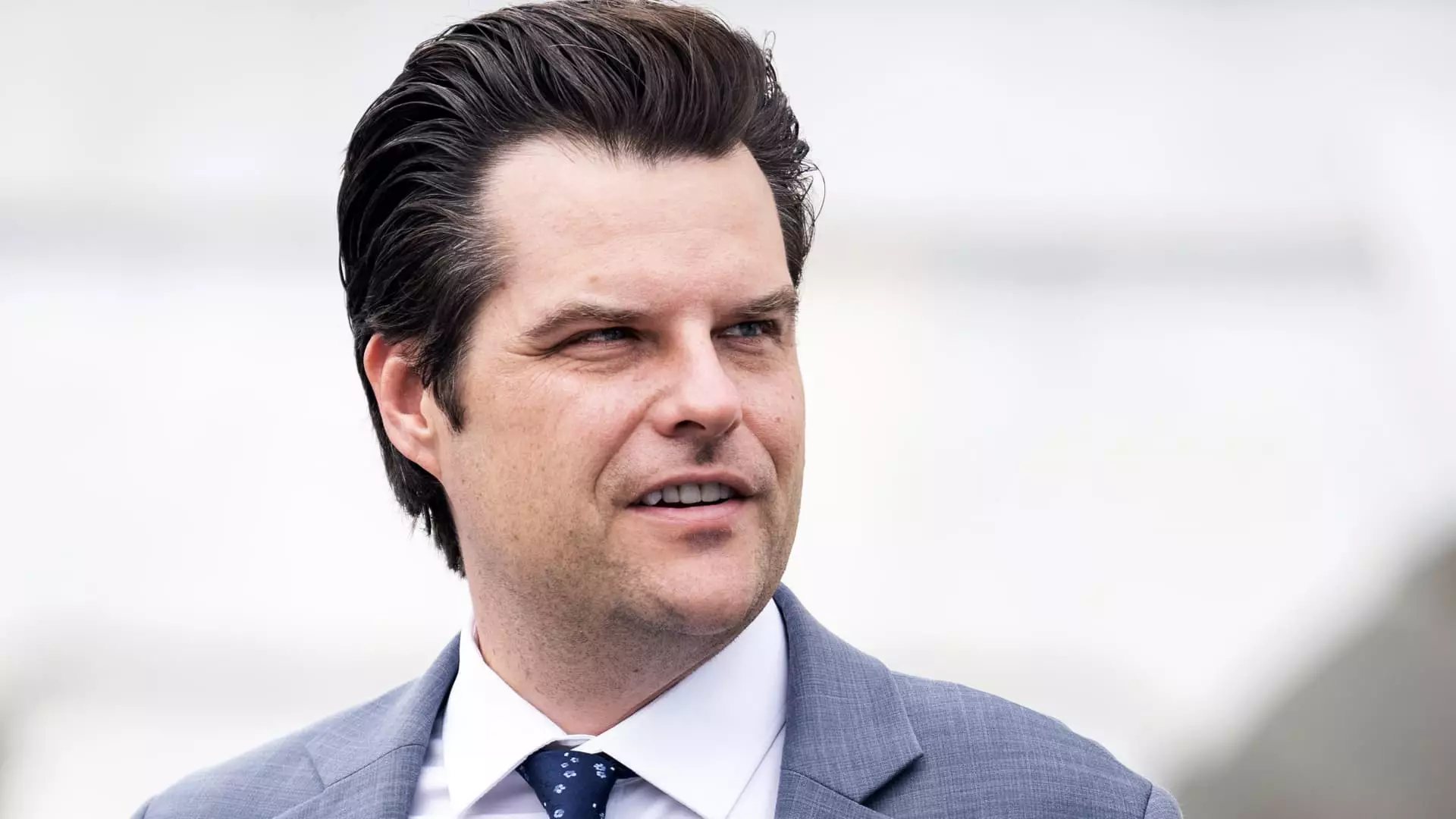The political arena in the United States is often characterized by unexpected turns, and the nomination of Rep. Matt Gaetz as U.S. Attorney General by President-elect Donald Trump is no exception. Gaetz’s appointment comes after a series of controversies that have shadowed his congressional career. Despite the tumult surrounding his reputation and the federal investigations he has faced, Trump’s choice seems grounded in a loyalty-first strategy that prioritizes personal allegiance over traditional qualifications. As the political landscape continues to shift, the implications of this decision may reverberate through both the Department of Justice and the Republican Party.
Resignation and Rumors
Gaetz’s resignation from Congress, as confirmed by House Speaker Mike Johnson, marks a pivotal moment in his career. Although the resignation remains unactivated until formally presented in the House, it underscores Gaetz’s commitment to ascend to a significant federal role. His decision to leave Congress, rather than facing potential ethical charges from the House Ethics Committee, raises concerns about his motivations and the integrity of the judicial responsibilities that he may soon oversee. The decision appears strategic, allowing him to evade scrutiny while paving the way for his confirmation as Attorney General.
Trump’s choice of Gaetz reflects a stark shift in the criteria for selecting key government officials. Instead of opting for candidates with extensive legal or administrative experience, Trump favors those who have fervently defended him and his agenda. Gaetz, a prominent figure in the MAGA movement, has consistently aligned himself with Trump’s narrative, attacking the Department of Justice and special counsel probes as politically motivated. This loyalty-driven selection raises eyebrows about the kind of leadership Gaetz will bring to a Department often criticized for its levels of independence and integrity.
Gaetz’s nomination is facing backlash not only from those outside the Republican party but also from within. Critics have pointed out the unresolved ethical investigations into his conduct, including allegations of sexual misconduct and illicit drug use. Although Gaetz has publicly denied wrongdoing, the specter of these allegations looms large as he looks to take charge of an agency that undertakes sensitive investigations and prosecutions. The situation bears the potential for conflict of interest, especially considering Gaetz’s critical stance towards the very investigations that involve him.
Capitol Hill Reactions
Responses from colleagues on Capitol Hill to Gaetz’s nomination have been mixed—ranging from shock to concern. Sen. Susan Collins expressed her disbelief, noting that such appointments necessitate close scrutiny during the Senate confirmation process. The prospect of Gaetz appearing before senators to answer questions about his character, judgment, and actions raises genuine concerns about his suitability for the role. Furthermore, amid the turbulence within the GOP due to internal schisms—exemplified by Gaetz’s actions in ousting former House Speaker Kevin McCarthy—Trump’s endorsement of Gaetz as Attorney General signals a willingness to embrace divisive figures, potentially further polarizing the party.
A Painful Legacy?
The ramifications of Gaetz’s confirmation, if it occurs, could lead to a reevaluation of the Attorney General’s role as a guardian of legal integrity and justice. Critics are rightly questioning whether Gaetz can transcend his controversial past to lead an agency tasked with enormous power and responsibility. His history of incendiary rhetoric and public defiance of institutional norms raises concerns about whether he can effectively manage a department already under scrutiny for perceived politicization.
In sum, the nomination of Matt Gaetz as Attorney General encapsulates the current dynamics of American politics, revealing a predilection for loyalty amidst controversy. As the confirmation process approaches, many will be watching closely to see whether Gaetz can rise above his past and deliver the reforms the Department of Justice needs. But if history is any indication, his appointment could deepen the fractures within the Republican Party and challenge the integrity of one of the nation’s most vital institutions. The future of the DOJ under Gaetz remains uncertain, laden with both potential and peril.


Leave a Reply